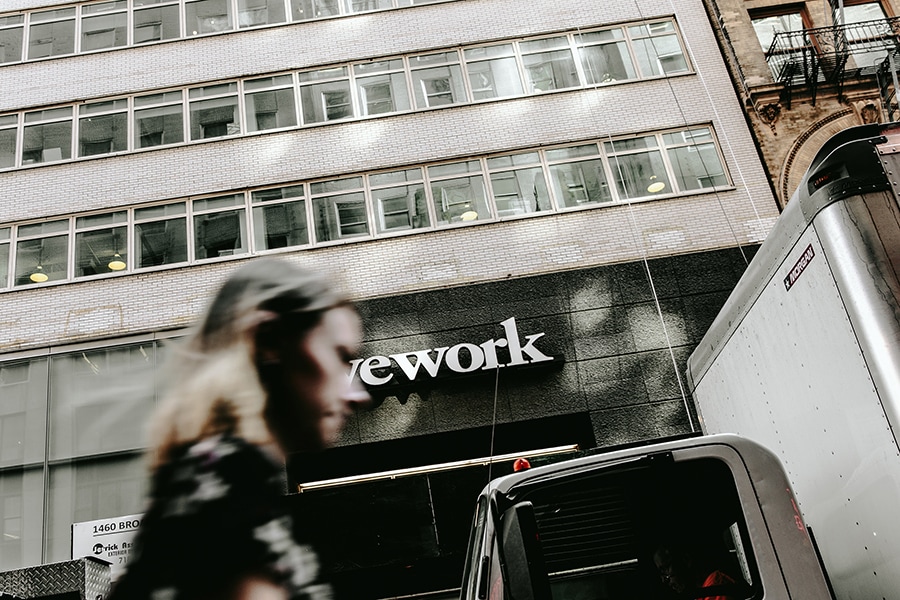
WeWork accepts bailout from SoftBank
The multibillion-dollar takeover would enable SoftBank, which has already pumped billions into the company, to wrest control from Adam Neumann, WeWork's co-founder and former chief executive
 A WeWork location near New York's Times Square on Sept. 23, 2019. WeWork has agreed to be taken over by its largest outside investor, SoftBank, two people with knowledge of the matter said, in a deal that ends weeks of uncertainty for the troubled shared office space company
A WeWork location near New York's Times Square on Sept. 23, 2019. WeWork has agreed to be taken over by its largest outside investor, SoftBank, two people with knowledge of the matter said, in a deal that ends weeks of uncertainty for the troubled shared office space companyImage: Haruka Sakaguchi/The New York Times
WeWork said it was going to transform the market for office space, reinvent the way people work and elevate the world’s consciousness. But in recent weeks, the brutal reality beneath the lofty visions has emerged.
After failing to go public, the company was running out of money fast and needed a bailout. On Tuesday, WeWork’s largest outside investor, SoftBank, provided a last-ditch lifeline — a multibillion-dollar takeover that would enable it to wrest control from Adam Neumann, WeWork’s co-founder and former chief executive, three people with knowledge of the matter said.
Even though Neumann’s hypergrowth strategy drove WeWork into the ground, he could walk away with $1 billion while giving up special voting rights and stepping down from the board.
It’s a messy, costly turn to an audacious corporate experiment — one that tried to remake the stodgy old business of subletting office space into a cutting-edge technology play. WeWork’s descent highlights the dangers of throwing money at inexperienced chief executives who say they can upend long-established industries.
“WeWork’s basic business model is nothing more than a real estate play,” said Vijay Govindarajan, a management professor at Dartmouth College’s Tuck School of Business in New Hampshire. “Let’s not fool ourselves by calling them a tech company.”
Now, SoftBank, which had already poured billions into WeWork, will be pouring billions more in hopes of recovering its investment. The company’s business — leasing space, refurbishing it and renting it out to its “members” — is not profitable and may not be for the foreseeable future.
©2019 New York Times News Service






